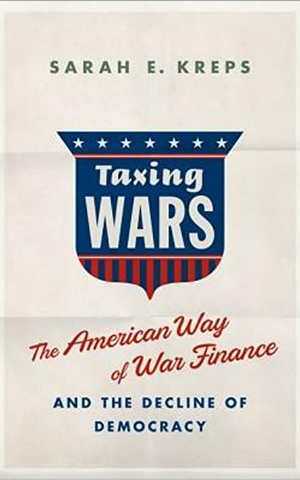
Taxing Wars: The American Way of War Finance and the Decline of Democracy
- Book
- Jun 1, 2018
- #Politics #MonetaryPolicy #Tax
Why have the wars in Afghanistan and Iraq lasted longer than any others in American history? The conventional wisdom suggests that the move to an all-volunteer force and unmanned te...
Show More
Number of Pages: 336
ISBN: 019086530X
ISBN-13: 9780190865306